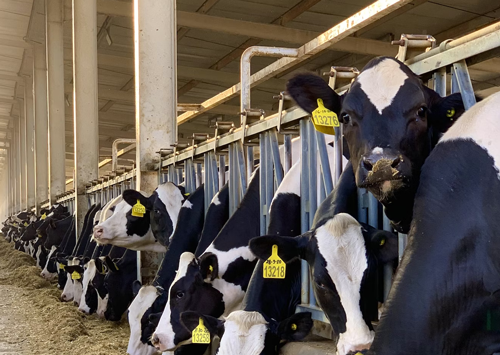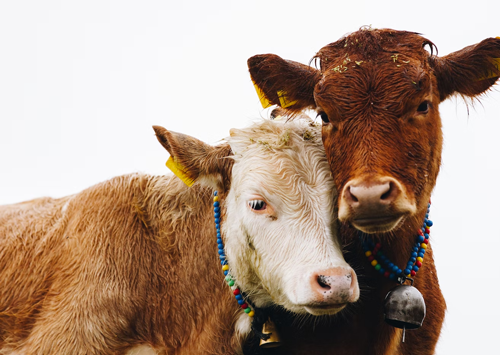Why Vegans Avoid Dairy
There are many reasons why vegans choose to avoid dairy. From the negative impact on the cows, the environment, and human health, to the cruel and inhumane treatment of animals in the dairy industry, the choice to go vegan and avoid dairy is one that benefits everyone involved. By choosing non-dairy alternatives, we can help create a kinder, healthier, and more sustainable world for all.
The Ugly Truth About Cows: Why Veganism is the Way to Go
Cows are amazing animals that have been domesticated for thousands of years. They are intelligent, social animals that are capable of forming strong bonds with other cows and even humans. However, despite their amazing qualities, cows are often viewed as mere commodities in the dairy industry.
The dairy industry often involves keeping cows confined in small spaces, separating them from their calves, and subjecting them to a constant cycle of pregnancy and lactation. This unnatural lifestyle can lead to a number of health problems for the cows, including mastitis, lameness, and reproductive issues. As an animal lover, it breaks my heart to see these gentle creatures treated this way.
The dairy industry is also detrimental to the environment. According to a report by the United Nations Food and Agriculture Organization, the livestock sector, including dairy cows, is responsible for about 14.5% of all human-induced greenhouse gas emissions. This is more than the emissions produced by the entire transportation sector.
In addition to the negative impact on the cows and the environment, consuming dairy products can also have negative health consequences for humans. Many people are lactose intolerant, which means they cannot digest lactose, a sugar found in milk. Additionally, dairy has been linked to an increased risk of certain health problems, including heart disease, type 2 diabetes, and certain types of cancer.
But perhaps the most shocking thing about the dairy industry is the way it treats cows. According to PETA, dairy cows are often subjected to cruel and inhumane treatment. Cows in the dairy industry are artificially inseminated, separated from their calves at birth, and then milked by machines several times a day. They are often kept in cramped conditions, and their horns are removed without any pain relief. This all causes the cows to suffer from physical and psychological stress.

The dairy industry is also responsible for the death of many young calves. Male calves are of no use to the dairy industry, and are often sent to slaughter soon after birth. Female calves are usually kept alive to be used as dairy cows, but they also endure a lifetime of suffering.
Dairy Alternatives - Better for you. Better for Cows. Better for the Planet.
The good news is that there are plenty of delicious and healthy dairy alternatives available, which are kinder to cows, the environment, and human health. Some examples of vegan milks include soy milk, almond milk, oat milk, and coconut milk. These plant-based milks are cholesterol-free, lower in fat, and often fortified with vitamins and minerals.
There are also plenty of dairy-free alternatives to other dairy products available in the UK, such as cheese, yogurt, butter, and ice cream. These products are made from plant-based ingredients, such as nuts, seeds, and soy, and are just as delicious as their dairy counterparts.
By choosing non-dairy alternatives, we can help to create a kinder, healthier, and more sustainable world for all.

10 Shocking Facts About Cows That Will Make You Rethink Your Food Choices
At Vegan Supermarket we believe it's important to know the truth about the impact our food choices have on the animals and the planet. Here are 10 shocking facts about cows that will make you rethink dairy and hopefully consider dairy alternatives.
- Cows are intelligent and emotional beings with their own personalities, friendships, and social hierarchies. They are capable of experiencing a range of emotions, including joy, fear, and sadness.
- In order to produce milk, cows are forcibly impregnated every year, and their calves are taken away from them shortly after birth, causing extreme emotional distress for both the mother and baby.
- The dairy industry is a major contributor to climate change, as cows produce significant amounts of methane, a potent greenhouse gas.
- Cows raised for dairy are often subjected to painful and inhumane practices such as tail docking, dehorning, and confinement in small spaces.
- The use of antibiotics in the dairy industry has contributed to the rise of antibiotic-resistant bacteria, making it harder to treat human infections.
- The production of dairy products requires a significant amount of land, water, and other resources, contributing to deforestation, water pollution, and other environmental issues.
- Cows raised for dairy are often given growth hormones and other drugs to increase milk production, which can have negative health effects on both the cows and humans who consume the milk.
- The dairy industry is a major contributor to water pollution, as large amounts of manure and other waste are generated and often end up in waterways.
- Cows raised for dairy are typically slaughtered for meat once they are no longer able to produce milk, usually at a fraction of their natural lifespan.
- Plant-based milk alternatives such as soy, almond, and oat milk are widely available and can provide a more sustainable, humane, and healthy alternative to dairy milk.




